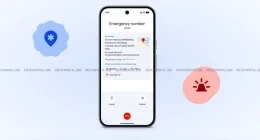With machine learning become ubiquitous, Google is integrating the same into each of its apps to make them perform faster and act more accurately. A couple months ago, the tech behemoth integrated its new neural machine translation system right into the Google Translate app to improve Mandarin Chinese to English translations. This machine learning system enables the user to accurately translate phrases (not words!) from one language to another in real-time.
Today, Google has announced that it is expanding the scope of the technology from Chinese to streamline translations to and from French, German, Spanish, Portuguese, Chinese, Japanese, Korean and Turkish. In its blog post, the tech behemoth says that it planned to extend to these eight language pairs because:
These represent the native languages of around one-third of the world’s population, covering more than 35% of all Google Translate queries!
The accurate translations of one complete sentence to another have been made possible due to Google Neural Machine Translation system (or GNMT). Using this state-of-the-art technology, each word of the input sentence will first be broken down and translated before joining them to form the final output sentence.
While the Mountain View-based tech behemoth might have only introduced machine learning to eight language pairs, the ultimate goal is to accommodate translations from all 103 languages in the Translate app. Once this achievement is unlocked, you’ll be able to access more accurate translations, especially as time passes by.
In addition, Google has also announced that it is making the neural machine learning system available for all businesses through its Cloud Translation API. This will any developer to use the company’s translation technology to build upon the same without any restrictions. And it would be highly beneficial for both if foreign developers can help further enhance the capabilities of the already robust infrastructure. It would lead to an increase in the number of users who will be dependent on Google for translations.
The Tech Portal is published by Blue Box Media Private Limited. Our investors have no influence over our reporting. Read our full Ownership and Funding Disclosure →






